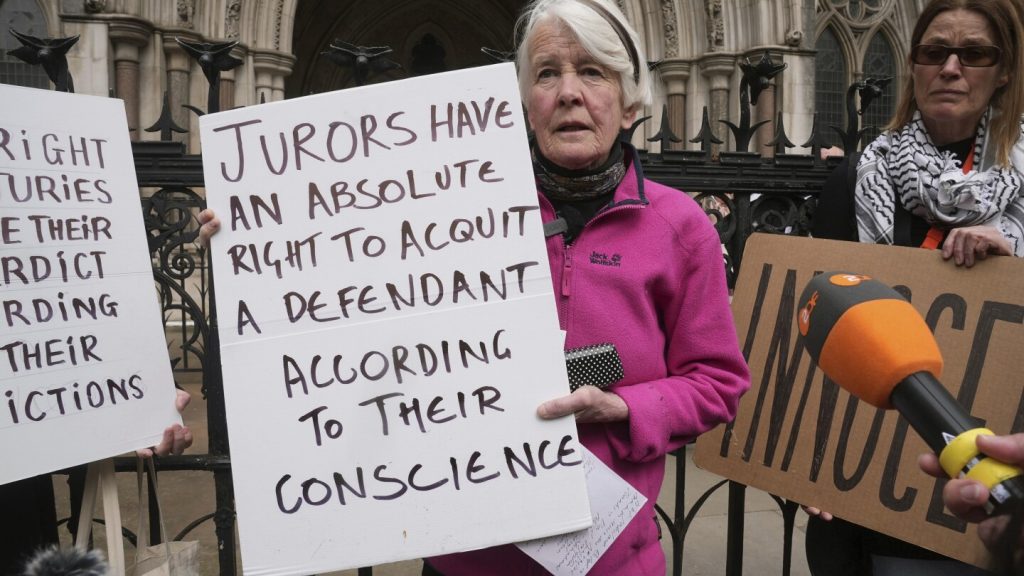The London judge ruled that climate protester Trudi Warner cannot be charged with contempt of court for holding a sign outside a courthouse reminding jurors of their right to acquit defendants. Warner had been accused of targeting jurors before a trial of climate activists, but the judge determined that her actions did not interfere with the jurors’ ability to reach a verdict based on their conscience. This ruling comes amidst a trend of environmental activists being arrested for peaceful demonstrations in Europe and the U.K., where new laws restrict the right to protest. Critics argue that these laws are eroding civil rights without adequate scrutiny or protection by the courts. Warner’s case sparked a wave of similar protests outside courthouses, with at least two dozen activists interviewed by police, although only Warner has been charged so far.
The Conservative British government defends the new protest laws as necessary to prevent extremist activists from disrupting daily life and harming the economy. However, critics believe that these laws are undermining the foundations of trial by jury and are restricting the right to peaceful protest. Warner’s successful defense was seen as a victory by many who joined her in protesting outside courthouses, with the “Defend Our Juries” movement gaining momentum. While Warner expressed relief at the judge’s ruling, she also highlighted the intimidating nature of facing government charges and a lengthy indictment. Warner’s case has brought attention to the broader issue of civil rights and the right to protest in the U.K., as activists continue to push back against restrictive laws and regulations.
The ruling in Warner’s case raises questions about the balance between protecting the judicial process and safeguarding the right to freedom of expression and peaceful protest. Critics argue that the government’s approach to handling protests, particularly those related to climate activism, is heavy-handed and restricts the fundamental rights of citizens. The wave of support for Warner and the “Defend Our Juries” movement indicates a growing concern over the erosion of civil liberties and the need for greater accountability in the legal system. As the debate over protest laws continues, activists and civil rights organizations are likely to push for more transparency and oversight to ensure that individuals’ rights are protected.
Warner’s case also highlights the power of grassroots movements and collective action in challenging oppressive laws and regulations. By organizing protests outside courthouses and raising awareness about the issue of contempt of court charges for peaceful demonstrations, activists were able to bring attention to the broader implications of restricting the right to protest. The success of Warner’s defense could inspire others to challenge similar charges and push for greater protections for civil liberties in the face of a government crackdown on dissent. As the fight for civil rights and freedom of expression continues, the ruling in Warner’s case serves as a reminder of the importance of solidarity and collective action in standing up against injustice and defending basic rights.


